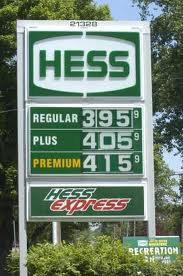Gas tax proposed by oil company president
Did I hear right?
Earlier this month, John B. Hess of Hess Corp. said the U.S. should consider imposing a $1-a-gallon gasoline tax and boosting the average auto fuel economy standard to 50 miles a gallon to help avert a global energy crisis.
One unavoidable warning message: if John Hess says gasoline prices are headed up, they probably are.
“As demand grows in the next decade, we will not have the oil-production capacity we will need to meet demand. . . The $140-per-barrel oil price of three years ago was not an aberration — it was a warning.”
But maybe Hess is signaling something positive too. Could this be the tipping point for Congress to do something about a coming energy shortage? If Hess, along with the Pentagon and other serious planners, say we won’t have enough oil, can policymakers be far behind?
Well yes, when it comes to scientific and economic projections, legislative policy in Washington can be up to 4,300 years behind.
But Hess’ proposal may be the politically acceptable first step towards lowering energy demand and encouraging alternatives more broadly. Cap-and-trade may be dead, but there are other ways to raise the cost of energy – artificially and gradually – giving the country advance incentives to change our technology, habits, and expectations. (Don’t hold your breath. Hess also said he thought that the country should not debate energy taxes “until the economy’s growing and people are put back to work.”)
My bottom line: a gas company CEO is telling us that the price of gas is going up and, if we continue to use the same amount, it’s probably not coming down again. When the science and economics on important issues like this is in dispute, I keep looking for unprejudiced sources, and I think Hess is one. I can’t see how a company trying to reduce the price of its product hurts me. What am I missing here?
Whatever happens in Washington, it’s a good thing we’re working on all those ways to reduce our dependence on energy at home!




